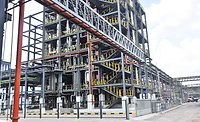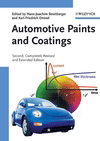AkzoNobel and Atul Announce Partnership

AMSTERDAM - AkzoNobel and Atul have announced their intention to jointly invest in the production of monochloroacetic acid (MCA) in India, which will include setting up an MCA plant at Atul's facility in Gujarat. Each partner will hold a 50% stake.
The partnership will build on Atul's status as a leading global supplier of the herbicide 2,4-D, which uses MCA as a key raw material, and AkzoNobel's leading position in the MCA market, with plants in the Netherlands, China, Japan and the United States. The investment is subject to regulatory approvals and signing of final agreements.
The partnership will use chlorine and hydrogen manufactured by Atul to produce the MCA, taking advantage of both Atul's existing infrastructure and the leading eco-friendly hydrogenation technology supplied by AkzoNobel. From an initial annual capacity of 32 kilotons at start-up, the plant has been designed for future expansion to 60 kilotons. The plant will produce enough MCA to meet the captive requirement of Atul; AkzoNobel will market the rest of it, primarily in India.
MCA is an essential building block in the chemical industry and is used in a wide variety of chemicals. For example, AkzoNobel customers use MCA to produce thickening agents for the food, oil, mining, personal care and detergent industries. The product is also used in agrochemicals, adhesives, pharmaceuticals, thermo-stabilizers, surfactants and cosmetics.
Looking for a reprint of this article?
From high-res PDFs to custom plaques, order your copy today!








